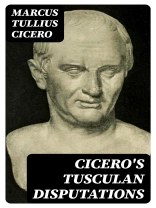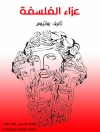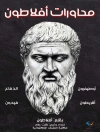Cicero’s *Tusculan Disputations* is a profound philosophical dialogue that explores the nature of happiness and the human condition through a series of discussions between the author and his interlocutors. Written in a direct and engaging style, the text weaves together Stoic principles and Platonic ideals, allowing Cicero to delve into the complexities of morality, death, and the pursuit of the good life. Set against the backdrop of late Roman Republic turmoil, this work stands as a testament to the intellectual discourse of the time, emphasizing both the personal and civic dimensions of philosophy. Marcus Tullius Cicero, a statesman, orator, and philosopher of the first century BCE, was deeply influenced by the political and social upheaval of his era. His experiences in public life, coupled with his belief in the importance of philosophy as a means for ethical living and civic responsibility, shaped the themes in *Tusculan Disputations*. Cicero sought to make philosophy accessible to a wide audience, framing his inquiries through the lens of Roman cultural values and the urgent quest for stability amidst chaos. *Tusculan Disputations* is highly recommended for readers interested in classical philosophy, ethics, and the historical context of Roman thought. Cicero’s eloquence and mastery in presenting complex ideas make this work not only intellectually enriching but also profoundly relatable to contemporary struggles with morality and existential inquiry.
Sobre el autor
Marcus Tullius Cicero (106-43 BCE) was a Roman statesman, orator, and author who became renowned for his contributions to Roman rhetoric, philosophy, and politics. A prolific figure of the late Roman Republic, Cicero sought to import Greco-Roman philosophical thought into a Roman context, distinguishing himself both as an academic and a practitioner of law. Cicero’s body of work encapsulates a range of intellectual pursuits from ethical theory to rhetorical technique. In his ‘Tusculan Disputations’, Cicero explores themes of human nature, the pursuit of wisdom, and the quest for the good life through a series of dialogues set in his villa at Tusculum. The work is notable for its Socratic method and for its attempt to adapt Hellenistic philosophies, particularly Stoicism and Epicureanism, to Roman ideals of virtue and statecraft. Cicero’s literary style is characterized by a meticulous attention to language and a powerful oratory that has been studied and emulated well into the modern era. His capacity for synthesis of complex ideas and keen interest in widespread societal issues make his contributions to Western thought and literature indisputable. Cicero’s legacy persists through the centuries, thanks to the extensive preservation of his letters, speeches, and philosophical treatises.












